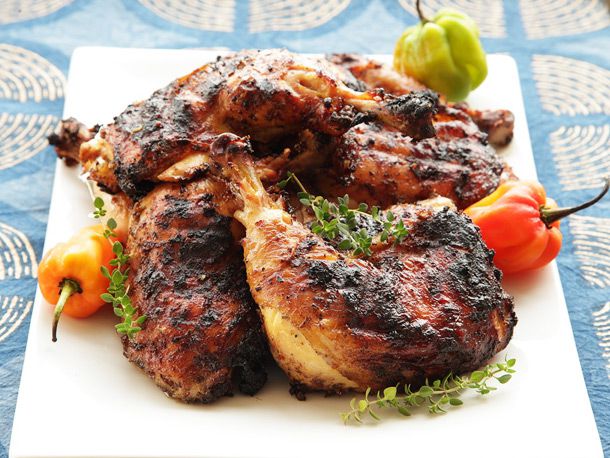When you visit Jamaica, it’s easy to be swept away by the beauty of the island, its vibrant music scene, delicious cuisine and warm-hearted people.
However, one thing that often goes unnoticed by many tourists is the deeply ingrained cultural love for traditional games.
One such game that has stood the test of time is Ludo (or Ludi as it’s affectionately known in Jamaica).
This simple yet engaging board game has become a staple of everyday life on the island and is an essential part of the Jamaican experience.

How Ludo Came to Jamaica
Ludo is believed to have originated in India, where it was originally called Pachisi.
From India, it spread to England during the British colonial era, where it underwent several changes to become the version of Ludo we recognize today.
As the British influence expanded globally, the game made its way to Jamaica during the early 20th century, where it was quickly embraced by the local population.
In Jamaica, Ludo evolved into something more than just a game; it became a part of the social fabric.
Played across the island in homes, bars and on street corners, Ludo has not only endured through the years but has become an iconic symbol of community, competition and camaraderie in Jamaican culture.
Cultural Importance of Ludo in Jamaica
Ludo is much more than just a pastime in Jamaica.
It is deeply embedded in the island’s cultural identity, offering a window into the everyday lives of Jamaicans.
Whether in bustling urban centres or quiet rural villages, you’ll find groups of people gathered around a colourful Ludo board, eagerly rolling the dice and strategizing their next move.
It’s a game that transcends age, race and background, bringing people together to share in the joy of friendly competition.
You’ll often find the game being played in bars, where locals socialize after a long day’s work or at street corners, where the familiar sounds of laughter, shouting and dice clattering fill the air.
It is not unusual to see large crowds gathered, intently watching matches between two or more players.
The stakes can sometimes get high, with a sense of pride and reputation at play.
This kind of community engagement has turned Ludo into a cherished tradition, one that has been passed down from generation to generation.



The Unique Design of Ludo Boards
While Ludo’s basic rules have remained consistent over the years, the design of Ludo boards in Jamaica is where the local flair shines through.
Traditional wooden boards are often hand-painted, showcasing vibrant colours and intricate designs that reflect Jamaican artistic sensibilities.
Some boards are carved with Jamaican symbols, such as the national flag or images of tropical wildlife, adding a unique cultural twist to the game.
These locally crafted boards are prized possessions, often seen as a point of pride for their owners.
Additionally, modern-day Ludo boards in Jamaica come in a variety of materials, including plastic, metal and cardboard. But regardless of the material, each board exudes the same sense of fun and excitement that has made the game so beloved.
How to Play Ludo: The Basic Rules
Whether you’re a seasoned pro or a first-time player, understanding the basic rules of Ludo is simple:
1. Players: Ludo is typically played by 2 to 4 players.
Each player chooses a colour and places four pieces of that colour in their starting area.
2. Objective: The goal of the game is to be the first player to move all four of your pieces around the board and into the home area.
3. Movement: Players take turns rolling a single die.
To enter a piece into play, you must roll a six. After that, you can move your piece forward by the number rolled.
If you roll a six, you get another turn.
4. Safe Zones: Some squares on the board are designated as safe zones, where pieces cannot be captured.
These squares are usually marked with a different colour or symbol.
5. Capturing: If a player lands on a space occupied by an opponent’s piece, the opponent’s piece is sent back to the starting area and they must start again.
6. Winning: The first player to move all four of their pieces into the home area wins the game.
Variations and House Rules
While the basic rules of Ludi remain consistent, many players introduce variations or house rules to add excitement and challenge.
These variations can include different methods for entering the board, special rules for rolling doubles or additional safe zones.
The flexibility of Ludi allows players to tailor the game to their preferences and create unique gaming experiences.

In Jamaica, Ludo isn’t just a game; it’s a shared experience that brings people together, from street corners to backyard gatherings.
It represents the island’s rich cultural heritage, its sense of community and its joy in simple, timeless pleasures.
Whether you’re a tourist looking to dive deeper into Jamaican culture or someone seeking a bit of friendly competition, grabbing a Ludo board and joining in the fun is a great way to immerse yourself in the vibrant life of Jamaica.
So, next time you’re on the island, make sure to stop by a local bar or street corner and challenge a Jamaican to a game of Ludo — you might just find yourself making new friends and learning a little bit about the heart of this beautiful country.




